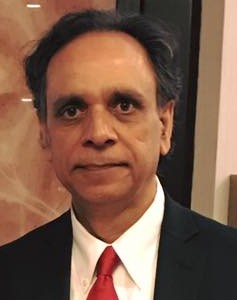By Upendra Mishra
Abraham Lincoln, the 16th president of the United States from 1861 until his assassination in 1865, had his shares of miseries. At 9, he lost his mother. Not once but twice in his young age, he went through bout of deep depression. He failed in his first love. He was suicidal. He was called “crazy” by people in his community. He himself once admitted: “I am now the most miserable man living.”

How did Lincoln overcome his melancholy? How did he transform himself into one of the most successful politicians and presidents in the history of the United States? Why did social justice become so important to him? Why did he want to abolish slavery against all odds? What transformed him into greatness?
In early 1840s when Lincoln emerged from his treatment of depression, he decided to know himself. He wanted to rediscover himself. In the process, he found his core values and, thus, his greatness.
“His mind was elsewhere, trying to construct, from the throes of difficulty and uncertainty, a way of understanding the world and his place in it. In these early musings, Lincoln was still searching to understand who he was, where he was going in the world, and indeed, where he could survive,” wrote Joshua Wolf Shenk in his book Lincoln’s Melancholy: How Depression Challenged a President and Fueled His Greatness (A Mariner Book: 2005). “Yet this self-centered concern with his own suffering led him, slowly to see and grapple with the suffering around him.”
Lincoln’s life started to change for better when he began focusing on his own self, connecting his own core values, and shun public opinion about him and stop seeking advice from outside.

“Previously, Lincoln had responded to his troubles by seeking help from others, either explicitly or implicitly,” writes Shenk. “Now he spent an increasing amount of time alone.” In this context, Shenk quotes Anthony Storr who wrote “Solitude: A Return to the Self” as saying that the capacity to be alone, sometimes for a long time, can be profoundly important, as people come to terms with loss, sort out their ideas, or go through serious change.
“That solitude promotes insight as well as change has been recognized by the great religious leaders who have usually retreated from the world before returning to it to share what has been revealed to them,” write Storr in Solitude (Published 1988).
Storr cites several examples of spiritual leaders like Buddha, Jesus and Mohammad.
“Lincoln, in his early thirties, was decades away from attaining the sort of wisdom that would justify compassions with such figures,” says Shenk. “But like them, he turned from his suffering to the great questions of existence.”
As a result, Lincoln abolished slavery, led the United States through the American Civil War and did the great things because of his courage of conviction.
“I am not bound to win, but I am bound to be true. I am not bound to succeed, but I am bound to live by the light that I have. I must stand with anybody that stands right, and stand with him while he is right, and part with him when he goes wrong,” Lincoln said once.
Why knowing one’s true self and solitude to self-reflection are important for a fundamental turnaround in one’s life—no matter how grim the circumstances are?
The sages of Upanishads, the ancient Hindu Sanskrit texts that are part of Vedas, understood the importance of the Self and the Self-Realization. For them, the Self, the Atman and the Brahman were the same. Their realization needed focus, attention, self-reflection and quietness of mind. But first step in that direction was purity of mind.
“Control the senses and purify the mind. In a pure mind, there is constant awareness of the Self. Where there is constant awareness of the Self, freedom ends bondage and joy ends sorrow,” Sage Sanatkumara tells rishi Narada in The Chandogya Upanishad.
We will never know whether Lincoln realized his Self or not but we are absolutely sure about purity of his mind and his courage of conviction.
(Mr. Mishra is managing partner of the Waltham, MA-based integrated inbound marketing and PR firm The Mishra Group. He writes about his three passions: marketing, scriptures and gardening.)















